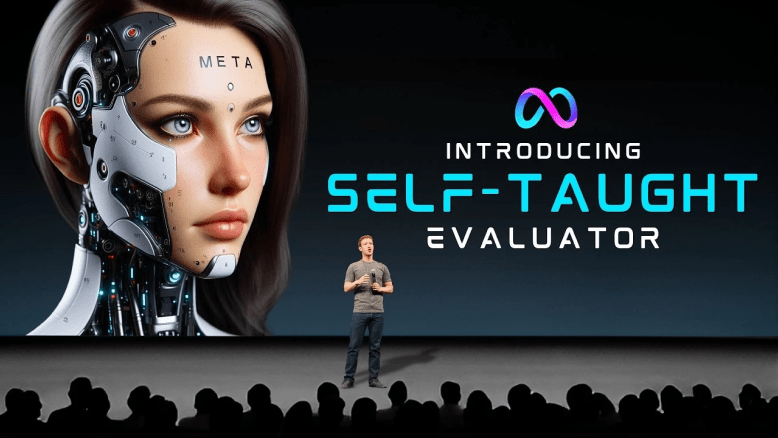Meta’s latest innovation, the Self-Taught Evaluator (STE), is poised to redefine AI development by minimizing human involvement in model evaluation. This advancement is set to transform business operations by cutting down on the high costs and extensive time associated with traditional AI training methods.
The STE model leverages a ‘chain of thought’ reasoning approach, where complex issues are deconstructed into smaller, manageable steps, enhancing accuracy across disciplines like science, math, and coding. Uniquely, it operates using entirely AI-generated data for training, eliminating the traditional dependence on human feedback.
For businesses, the implications are profound. By adopting AI systems capable of self-evaluation, companies can achieve unprecedented efficiency and scalability. Meta’s tests reveal that STE not only surpasses models trained with human-annotated data, such as GPT-4 and Llama-3.1, but does so with remarkable speed and accuracy.
Consider how businesses can harness these capabilities. For instance, an enterprise relying on AI for data analysis can now expect faster, more reliable outputs without the bottleneck of human oversight. This translates into quicker market insights and more agile decision-making, providing a competitive edge in industries where time is of the essence.
However, the shift towards AI self-evaluation is not without its challenges. Businesses must consider the implications of reduced human oversight in AI processes, especially concerning ethical standards and accountability. Ensuring that AI systems align with corporate values and regulatory requirements will be crucial in adopting these advanced technologies.
Meta’s release of the STE model, along with updates to other AI tools, invites businesses to explore the possibilities of self-evaluating AI. The potential for streamlined operations and enhanced profitability makes this a development that cannot be ignored. As companies navigate this new landscape, those who strategically integrate AI self-evaluation will likely lead the charge in innovation and efficiency.









